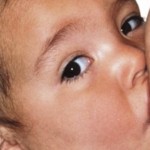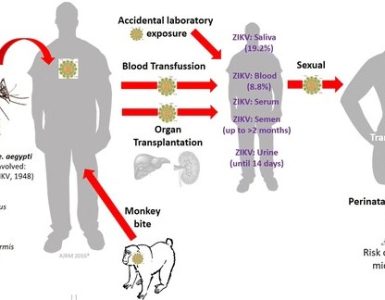 After being disregarded for more than two decades, pediatric HIV vaccines may reduce the risk of transmitting HIV to infants through breastfeeding.
After being disregarded for more than two decades, pediatric HIV vaccines may reduce the risk of transmitting HIV to infants through breastfeeding.
Approximately 300,000 infants are diagnosed with HIV each year. Although some are born with the disease, most acquire it after birth. The first two years of life while children nurse are a critical period because breastfeeding is the main way in which HIV is transmitted to infants.
Last year, Dr. Genevieve Fouda, a Duke researcher, led a team that reanalyzed the results of several 1990s clinical trials in which pediatric HIV vaccines were deemed ineffective. Their research showed that these vaccines induced the creation of previously overlooked antibodies which could protect some children from HIV while they are breastfeeding.
“The period of breast feeding in developing countries is between twelve and twenty-four months,” Fouda said. “If a vaccine could provide protection for the first two years of life, in the case of pediatric HIV, that would be great.”
Fouda noted that more than 50 percent of children in the original studies demonstrated an immune response after two years which could prevent HIV. She also stated, however, that the challenge is not just the development of vaccines and treatments, but also their distribution.
Fouda added that only 60 percent of pregnant women diagnosed with HIV complete a full course of treatment to protect the child, and only about fifty percent of pregnant women are tested for HIV.
Fouda hopes her study inspires future HIV vaccine trials to include young children.
“There are important differences between the immune systems of infants and adults,” Fouda said. “What we hope is that the scientific community will consider investigating vaccines that are promising in pediatric populations.”
Fouda hopes that her research on preventing HIV transmission to children will help contain the HIV epidemic in developing countries where the rate of transmission after birth is much higher than in the US.
“It’s about people and people who are suffering,” Fouda said. “It’s about making an impact in people’s lives.”
Source: Duke – The Chronicle

















